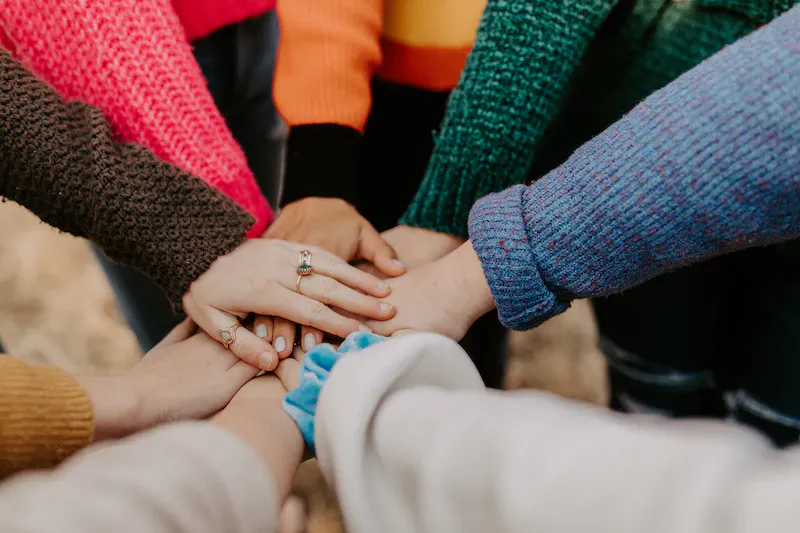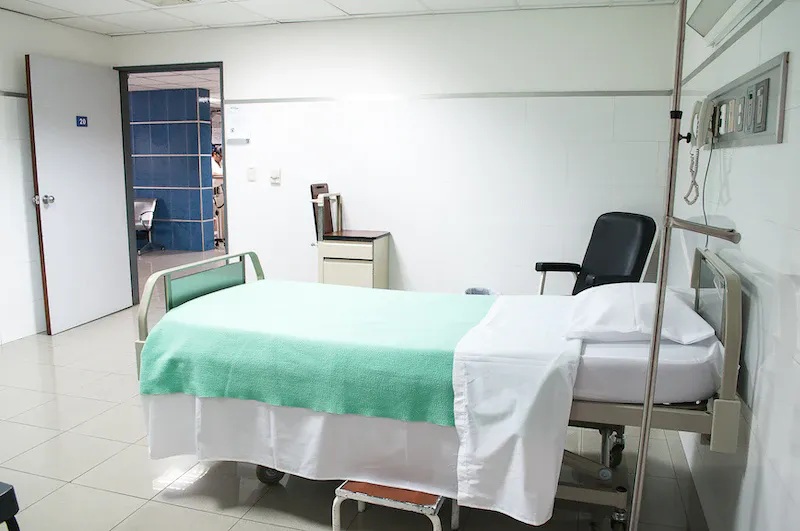The Importance of Addressing and Healing from Child Sexual Abuse

The power of vulnerability in connection
Vulnerability is a powerful tool that connects people to each other and to the world around them. Without vulnerability, true connection cannot exist. But trauma, particularly child sexual abuse, can disconnect people from themselves and from others.
Child Abuse Prevention Month and the silent epidemic of child sexual abuse
April is nationally recognized as Child Abuse Prevention Month. Sadly, an estimated five children die every day in the United States due to abuse and neglect. Child sexual abuse is a silent epidemic that affects millions of children in the US. The American Medical Association has labeled child sexual abuse a silent epidemic because it often goes unreported due to the silence of the victims.
The prevalence of child sexual abuse and its impact on survivors
Child sexual abuse is far more common than most people realize, with an estimated 42 million survivors in America alone. It is a crime that can happen to anyone, regardless of social status, ethnicity, or age. The impact of child sexual abuse on survivors is devastating, and the effects can last a lifetime. Survivors often experience severe changes in behavior, including social withdrawal, depression, anxiety, and suicidal ideation. However, with proper counseling and support, survivors can heal and find hope.
The importance of education and prevention
Education and prevention are crucial in addressing and preventing child sexual abuse. Jenna’s Law, which mandates training for school staff, educators, and students on how to recognize, prevent, and report child sexual abuse, has been adopted in over half the country. The ChildHelp Speak Up Be Safe curriculum is one of the best prevention programs for students. When children and adults are educated about the crime, taught safety strategies, who is safe to tell, and how to report, a victimized child is more likely to get the help they need.
The power of healing and refusing to keep the secret
Despite what anyone says, there is healing after child sexual abuse. Survivors can trust other people and sources of help, and slowly, their walls start to come down. The power of refusing to keep the secret and facing the trauma is transformative. Survivors can forgive and no longer allow the trauma to have power over them. They can hug the healing process and find hope for the future.
The Importance of Facing the Uncomfortable Truth About Child Sexual Abuse
Child sexual abuse is an uncomfortable topic that many people may find difficult to discuss. However, it is essential to face the uncomfortable truth about this issue to prevent it from continuing to happen. In this blog post, we will explore the importance of facing the uncomfortable truth about child sexual abuse, the role of silence in perpetuating this abuse, and the warning signs and symptoms to look out for.
The Importance of Facing the Uncomfortable Truth about Child Sexual Abuse
Child sexual abuse is a pervasive and harmful issue that affects millions of children worldwide. It is essential to face the uncomfortable truth about this issue to prevent it from happening in the first place. One of the biggest reasons that child sexual abuse continues to happen is that it is often hidden and not discussed openly. By facing the uncomfortable truth about child sexual abuse, we can raise awareness and break the cycle of silence that allows it to continue.
Additionally, by acknowledging the reality of child sexual abuse, we can help survivors find the support they need to heal. Survivors of child sexual abuse often suffer from trauma, shame, and guilt, which can impact their mental and physical health. By speaking openly about this issue, we can create a safe space for survivors to come forward and access the resources they need to recover.
The Role of Silence in Perpetuating Child Sexual Abuse
One of the biggest obstacles to preventing child sexual abuse is silence. Children who are victims of abuse may feel ashamed or guilty and may not want to speak out. Perpetrators of abuse often use threats and intimidation to keep their victims silent. In addition, the stigma surrounding sexual abuse can prevent survivors from coming forward.
It is important to break the cycle of silence surrounding child sexual abuse to prevent it from continuing to happen. Adults should educate themselves on the warning signs of child sexual abuse and create a safe space for children to disclose any abuse they may have experienced. It is also important to listen to children when they share their experiences and take appropriate action to ensure their safety and well-being.
Warning Signs and Symptoms of Child Sexual Abuse
Recognizing the warning signs and symptoms of child sexual abuse is essential to prevent it from continuing to happen. Some of the signs that a child may be a victim of sexual abuse include:
- Unexplained physical injuries, such as bruises or cuts
- Changes in behavior or mood, such as becoming withdrawn or anxious
- Difficulty sleeping or nightmares
- Bedwetting or other regressive behaviors
- Unusual or inappropriate interest in sexual matters
If you suspect that a child may be a victim of sexual abuse, it is essential to take action immediately. You can contact a local child protection agency or law enforcement to report any suspected abuse. Additionally, you can provide support and resources to survivors of sexual abuse, such as therapy or counseling services.
In conclusion, facing the uncomfortable truth about child sexual abuse is crucial to prevent it from happening in the first place. By breaking the cycle of silence and recognizing the warning signs of abuse, we can create a safer and healthier environment for children. Let us take the necessary steps to protect the children in our communities and give survivors the support they need to heal.
The importance of counseling for survivors of child sexual abuse
Child sexual abuse is a devastating and traumatic experience for survivors that can have long-lasting effects on their mental, emotional, and physical well-being. It is crucial for survivors to receive support and counseling to help them cope with the trauma and heal from its effects. In this blog post, we will explore the importance of counseling for survivors of child sexual abuse and the impact of prevention programs such as Jenna’s Law.
The importance of counseling for survivors of child sexual abuse
Survivors of child sexual abuse often experience feelings of shame, guilt, and fear, which can lead to depression, anxiety, and other mental health issues. Counseling provides a safe and supportive environment where survivors can work through their feelings, learn coping strategies, and develop healthy relationships. It can also help survivors regain a sense of control over their lives and build toughness.
Counseling for survivors of child sexual abuse may involve different therapeutic approaches, such as cognitive-behavioral therapy, trauma-focused therapy, and mindfulness-based interventions. The focus of counseling is to provide survivors with the tools they need to manage their symptoms and improve their overall well-being.
The need for prevention programs in schools and communities
Prevention programs are essential in schools and communities to educate children, parents, and educators about the risks and signs of child sexual abuse. These programs provide information on how to prevent abuse from happening, how to recognize warning signs, and how to report suspected abuse. Prevention programs can also help survivors feel supported and understood, reducing the stigma associated with abuse.
Effective prevention programs should focus on creating a safe and supportive environment for children, enabling them to speak up when they feel uncomfortable, and providing access to resources and support. By raising awareness and providing education, we can create a society that values and protects its most vulnerable members.
The impact of Jenna’s Law on preventing child sexual abuse
Jenna’s Law is a landmark child sexual abuse prevention law that was passed in Texas in 2009. The law requires public schools to provide students with age-appropriate education about child sexual abuse prevention, including how to recognize, report, and prevent abuse. Jenna’s Law also mandates that school personnel receive training on child sexual abuse prevention.
Jenna’s Law has had a significant impact on child sexual abuse prevention in Texas and beyond. By requiring schools to provide education and training, the law has helped raise awareness about the prevalence of child sexual abuse and how to prevent it. It has also provided survivors with resources and support, reducing the stigma associated with abuse and promoting healing and recovery.
In conclusion, counseling is essential for survivors of child sexual abuse to cope with the trauma and heal from its effects. Prevention programs in schools and communities are crucial to educate children, parents, and educators about the risks and signs of abuse. Jenna’s Law is a critical step in preventing child sexual abuse, raising awareness, and providing support to survivors. By working together, we can create a society that values and protects its most vulnerable members.
The hope for healing and recovery after child sexual abuse
Child sexual abuse is a devastating experience that can have lifelong impacts on survivors. However, it is important to remember that healing and recovery are possible. In this blog post, we will discuss the hope for healing and recovery after child sexual abuse, as well as the importance of refusing to keep the secret of child sexual abuse and the message of hope and giving power for survivors and advocates.
The hope for healing and recovery
While the impacts of child sexual abuse can be significant and long-lasting, healing and recovery are possible. Survivors of child sexual abuse can benefit from therapy, support groups, and other forms of counseling to help them process their trauma and move forward with their lives. It is important for survivors to understand that healing is a process that takes time and patience, but with the right support and resources, they can regain a sense of control over their lives and move towards a brighter future.
The importance of refusing to keep the secret
One of the most important steps towards healing and recovery after child sexual abuse is speaking out and refusing to keep the secret. Many survivors feel ashamed or guilty about what happened to them, and as a result, they keep their abuse a secret. However, this silence only perpetuates the cycle of abuse and prevents survivors from getting the help they need to heal.
By speaking out and breaking the silence, survivors can enable themselves and others. They can encourage other survivors to come forward and seek help, and they can raise awareness about the prevalence of child sexual abuse and the need for prevention and intervention programs.
The message of hope and giving power
Survivors of child sexual abuse need to know that they are not alone and that healing and recovery are possible. Advocates and support groups can play a critical role in spreading this message of hope and giving power. They can provide survivors with a safe and supportive environment where they can connect with others who have been through similar experiences, share their stories, and access resources to help them heal.
Through advocacy and education, survivors and their supporters can help to break the silence around child sexual abuse and create a brighter future for all children. By working together to promote prevention and intervention programs, we can help to ensure that no child has to suffer the devastating impacts of sexual abuse.
Conclusion
Child sexual abuse is a difficult topic to discuss, but it is a problem that needs to be addressed. The prevalence of child sexual abuse is alarming and its impact on survivors can last a lifetime. It is important for individuals to face the uncomfortable truth about child sexual abuse and break the silence that often perpetuates it. Counseling is a critical tool for survivors in the healing and recovery process. Prevention programs in schools and communities are necessary to help reduce the occurrence of child sexual abuse.
The hope for healing and recovery after child sexual abuse is possible. Survivors can find giving power and healing by refusing to keep the secret of their abuse and seeking support from others. Advocates play an important role in creating awareness and advocating for survivors.
We can all play a part in ending child sexual abuse by speaking up, educating ourselves and others, and supporting survivors in their journey towards healing and recovery. It is our responsibility to create a safe and supportive environment for survivors and to work towards preventing child sexual abuse in our communities. Let us all commit to being part of the solution and making a positive impact in the lives of survivors.




